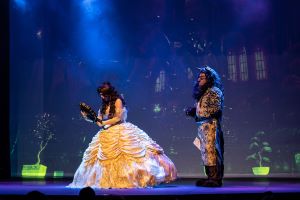Nine students who make up this year’s version of the ECU Guitar Ensemble at East Carolina University moved toward the end of their 2011-12 year by presenting a satisfying concert of less well known guitar music, including transcriptions of works by Grieg and Bizet. Joined by program director Elliot Frank for two of the selections, the students acquitted themselves well and showed that those in the guitar program can hold their own with participants in the university’s well known string and vocal music programs.
The real unexpected pleasure in the concert were works by Brazilian guitarist and composer Celso Machado, who now lives in Canada and is known for composing, singing and performing a variety of instruments in addition to guitar. Aaron Zakula and Adam Corriher opened the program with a lively reading of “Ponteio I,” a simple melody almost like a children’s song, in which the players exchanged leads and accompanying lines. Later in the program Jordan Hubbard, Jason Horton, Roby Salter and Henry Spencer played Machado’s “Caterete” and “Xote,” each with a lilting rhythm and lovely melody. These are not the usual Brazilian tunes for guitar one often hears (a la Bonfa, Jobim, et al), but they are delightful nonetheless, a wonderful discovery, and the players executed them skillfully. The sound of the guitar quartet on the latter two pieces was rich and full.
Corriher, Zakula and Frank played two Baroque-era pieces nicely, a minuet by Jean Baptiste Lully and a march by Johann Kaspar Ferdinand Fischer. Aaron Beck, Brandon Essick and Nathan Mills performed a lively piece by 20th century Paraguayan composer Agustín Barrios, “Zapateado Caribe,” which featured especially nice harmony playing by Mills and Essick.
The two transcriptions were interesting, one by Jeremy Sparks, a member of the now-disbanded Buffalo Guitar Quartet, and one by William Kanengiser, a member of and frequent arranger for the Los Angeles Guitar Quartet. Hubbard, Horton, Salter and Spencer were the quartet for the Sparks arrangement of two sections from Grieg’s Peer Gynt suite, “Morning Mood” and “In the Hall of the Mountain King.” The melodies are so familiar that they almost require something extra to warrant their inclusion on a program such as this, and for “Morning,” the extra was nice harmonies contrasting with solo lines played by treble strings and then by bass strings. “In the Hall of the Mountain King” picked up tempo as it concluded, but a bit of the melody line was lost as the playing intensified. Hubbard and Spencer had a good melody lead to open this section.
Beck, Essick, Mills and Frank were the quartet for the arrangement of four sections of Bizet’s Carmen suite, which received fine playing by the students and their professor. Both the “Aragonaise” and “Habanera” were well played, but the highlight was the lushly beautiful “Entr’acte,” led by Essick and joined by Mills, who then played a treble line over Beck’s melody, almost like a vocal descant. Less successful, unfortunately, was the quartet’s reading of the energetic “Toreadors” section, in which the ending of some of the lines was dominated by a strange chord that didn’t match the familiar melody. Not exactly a dissonance, but close.
Another unexpected pleasure in the program was an original composition by Zakula, a guitar trio played by Hubbard, Beck and Spencer. Perhaps classified as Zakula’s Op. 1, this brief piece created an initial impression of an Elizabethan song for lute, in style and melody, and was quite lovely. It will be interesting to see if Zakula expands this piece or pursues other guitar composition, either for solo instrument or small ensemble. His first effort shows considerable promise.
The program was short on fireworks (that likely will come during Frank’s 2012 Summer Guitar Festival July 14-17) and did not contain much in the way of embellishments — not many harmonics or lengthy arpeggios. But the playing was solid and straightforward, demonstrating the players’ clarity and skill.











